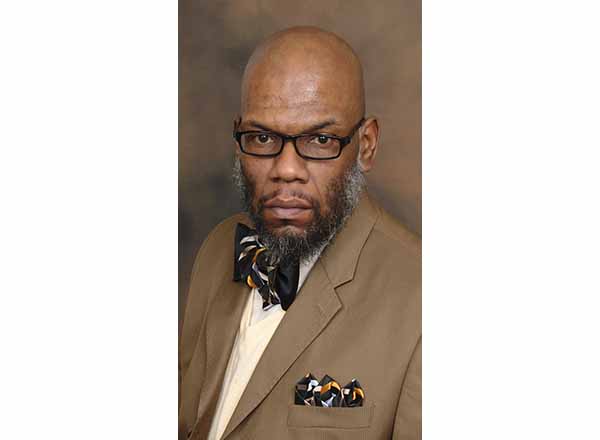Harvell accepted into U-M’s Diversity Scholars Network

Dr. Kalvin DaRonne Harvell, an HFC sociology professor and faculty advisor/coordinator of the Black Male and QUEENS (Quintessential Unique Essence of Ebony Necessary Sisters) Focus Group (BMQFG), was recently appointed to the prestigious Diversity Scholars Network at the University of Michigan in Ann Arbor.
The DSN is a scholarly community committed to advancing understanding of historical and contemporary social issues pertaining to race, identity, culture, representation, power, oppression, and inequality – as they occur and affect individuals, groups, communities, and institutions.
This network of nearly 1,000 scholars represents more than 200 educational institutions across the globe, which comprises tenured, tenure-track, clinical and research faculty, lecturers, research staff, and postdoctoral fellows. HFC is one of the first community colleges in Michigan to be included in the DSN.
“Although I am excited to have the opportunity to connect with such a distinguished group of scholars, this honor stands as a testament to the deliberate diligence, guidance, and ability of my parents to will my academic success into existence,” said Harvell, of Detroit.
Harvell’s academic background
Born and raised in Flint, Harvell graduated from the Flint Southwestern Academy. Harvell earned his bachelor’s and master’s degrees in sociology from Grand Valley State University in Allendale and Ohio University in Athens, OH, respectively. He earned his education specialist degree in administration from Oakland University in Rochester and his doctorate in global leadership studies with a higher education cognate from the Indiana Institute of Technology in Ft. Wayne, IN.
Since 1999, Harvell has taught at the College. During his time at HFC, Harvell founded the BMQFG, an academic and social support organization that works to change the accepted narrative and perspective regarding Black academic success, operating from a position of collective strength in order to address the role, obligations, and necessity of Blacks in higher education and beyond.
Harvell’s reputation and achievements go beyond HFC. In 2020, he was the keynote speaker at the annual Dr. Martin Luther King, Jr. Day held at OU, his alma mater. In 2019, he presented the 2019 Faculty Lectureship Award lecture called “An Uncomfortable Alliance: Racial Microaggressions and the College Campus”.
Enhancing scholarship through DSN
“I plan to use this opportunity as a member of the DSN to enhance my scholarship and continue to contribute to a body of literature that can be used in practical ways to assist students in successfully navigating the pervasive system of oppression in operation on the college campus (nurtured by the social system),” he said. “I look forward to making connections with other members of the DSN community. Additionally, I am already looking for opportunities that will assist in my teaching and research efforts. The BMQFG is currently planning for our Annual Black Male Retention and Success Conference in April. Once acclimated and I’ve created meaningful interactions in the DSN, I hope to begin to connect/identify individuals who may wish to share their research, guidance, and voice at this conference and beyond.”
Harvell spoke about the role of community colleges and how the voices of those involved with community colleges – faculty and students alike – should be heard in the DSN, especially since the community college movement was about inclusion.
Community colleges bring extraordinary perspectives to the table
“I believe in the idea that historically marginalized people should have access to education, and that community colleges are indispensable to this important goal. Our open admissions policy, for example, is the embodiment of inclusion. We are willing and happy to serve all populations. This is not a criticism of schools that select students whom they wish to attend. The culture of capitalism demands hierarchies of exclusivity for our credentials to be valued. While our teaching loads at the community college level can be complicated, it is important to note that community college faculty engage in critical research activities that can serve the growing body of literature on race in meaningful ways,” he explained. “Community college students have a great deal to offer to these conversations, yet their lived experiences are often left out of research agendas. Community college faculty have critical insights to offer.”
For Harvell, the best part of teaching at HFC is working with the students in BMQFG.
“Indeed, as one of the coordinators of BMQFG, I have been afforded the opportunity to connect with students, the Detroit metropolitan area, and at national and international conferences where important conversations about racial justice, research, and actions are taking place,” he said. “These young people are an inspiration. They volunteer in the community, engage in research, present at national conferences, and continue to be successful in the classroom. The BMQFG students are the personification of Black excellence, Black genius, and Black self determination (what we call Kujichagulia). This group does so much to help me remember, embrace, and continue to walk in our sacred mission of authentic education.
"I am committed to this work, and I will continue to build networks that nurture racial justice and a culture of academic success at Henry Ford College.”